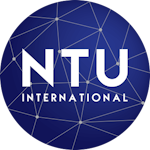Goal 4: Ensure inclusive and equitable quality education and promote lifelong learning for all.
Education is the gateway to opportunities, fostering intellectual growth, enhancing creativity, and serving as a foundation for self-respect. It contributes to a progressive, healthy society. However, global education progress is stagnating, with many students falling below proficiency levels in reading at the end of primary schooling, and many countries experiencing notable decline in learning outcomes by the end of lower secondary school, while progress in upper secondary completion rates has slowed down. Critical challenges, such as teacher shortages, inadequate training and lack of professional development opportunities for teachers, are additionally faced in some regions. Accelerating progress towards SDG 4 should be prioritized as it will have a catalytic impact on achieving the overall 2030 Agenda. We need to remember, that learning benefits every human being and, therefore, should be easily available. SDG 4 seeks to provide inclusive, quality education for all, preparing people for better future at every stage of life.
SDG's targets
Target 4.1: By 2030, ensure that all girls and boys complete free, equitable and quality primary and secondary education leading to relevant and effective learning outcomes.
Target 4.2: By 2030, ensure that all girls and boys have access to quality early childhood development, care and pre-primary education so that they are ready for primary education.
Target 4.3: By 2030, ensure equal access for all women and men to affordable and quality technical, vocational and tertiary education, including university.
Target 4.4: By 2030, substantially increase the number of youth and adults who have relevant skills, including technical and vocational skills, for employment, decent jobs and entrepreneurship.
Target 4.5: By 2030, eliminate gender disparities in education and ensure equal access to all levels of education and vocational training for the vulnerable, including persons with disabilities, indigenous peoples and children in vulnerable situations.
Target 4.6: By 2030, ensure that all youth and a substantial proportion of adults, both men and women, achieve literacy and numeracy.
Target 4.7: By 2030, ensure that all learners acquire the knowledge and skills needed to promote sustainable development, including, among others, through education for sustainable development and sustainable lifestyles, human rights, gender equality, promotion of a culture of peace and non-violence, global citizenship and appreciation of cultural diversity and of culture’s contribution to sustainable development.
Target 4.a: Build and upgrade education facilities that are child, disability and gender sensitive and provide safe, non-violent, inclusive and effective learning environments for all.
Target 4.b: By 2020, substantially expand globally the number of scholarships available to developing countries, in particular least developed countries, small island developing States and African countries, for enrolment in higher education, including vocational training and information and communications technology, technical, engineering and scientific programmes, in developed countries and other developing countries.
Target 4.c: By 2030, substantially increase the supply of qualified teachers, including through international cooperation for teacher training in developing countries, especially least developed countries and small island developing States.
To achieve SDG 4, NTU contributes to implementation of the following projects:

